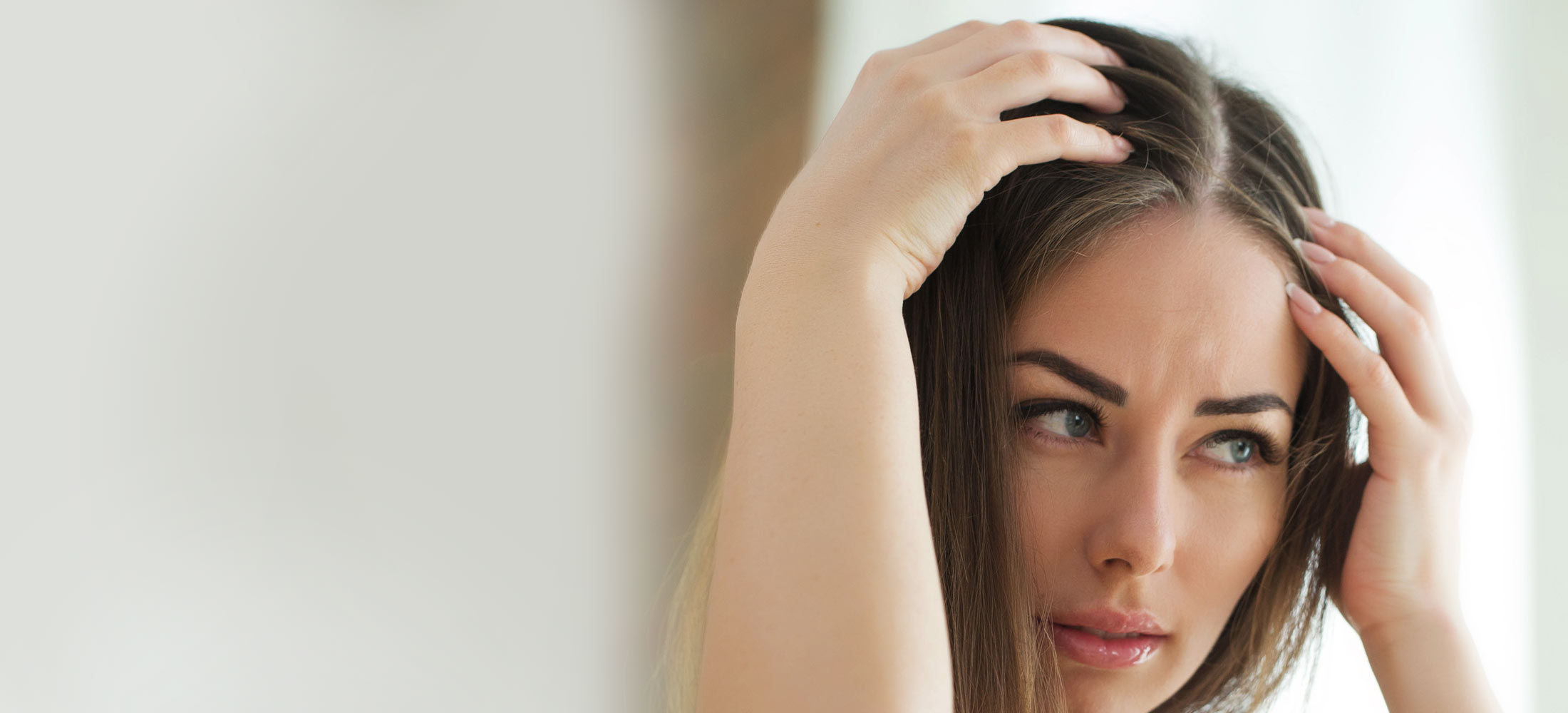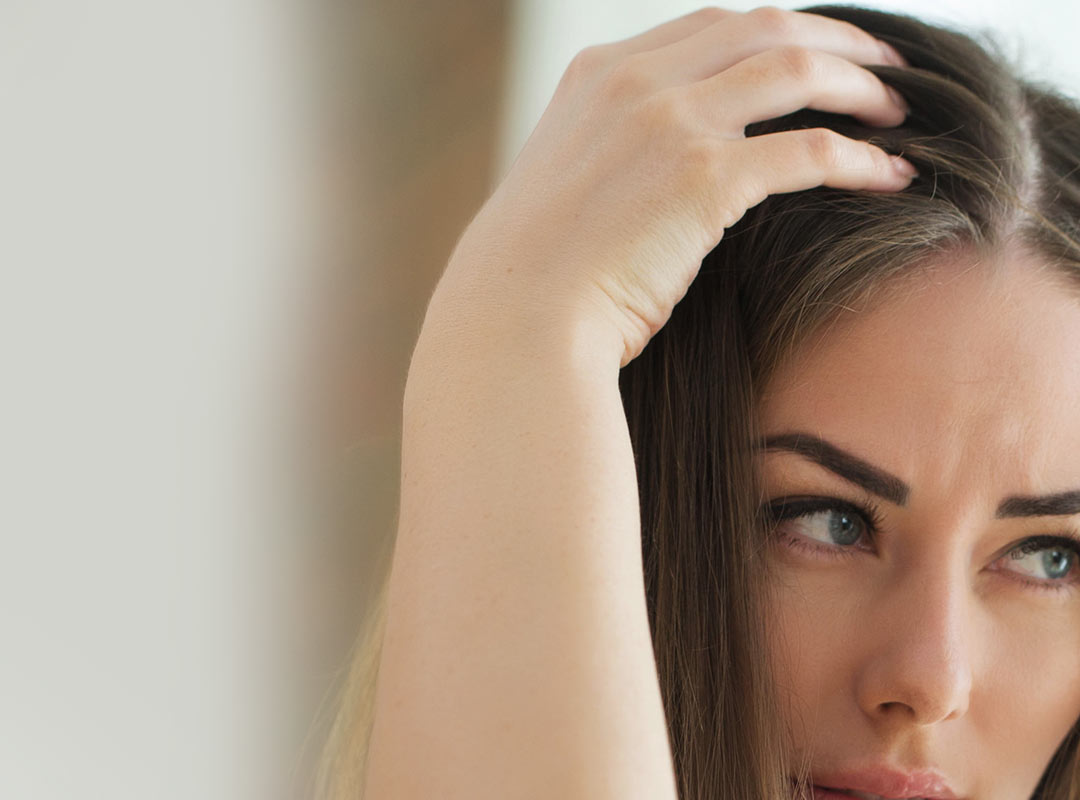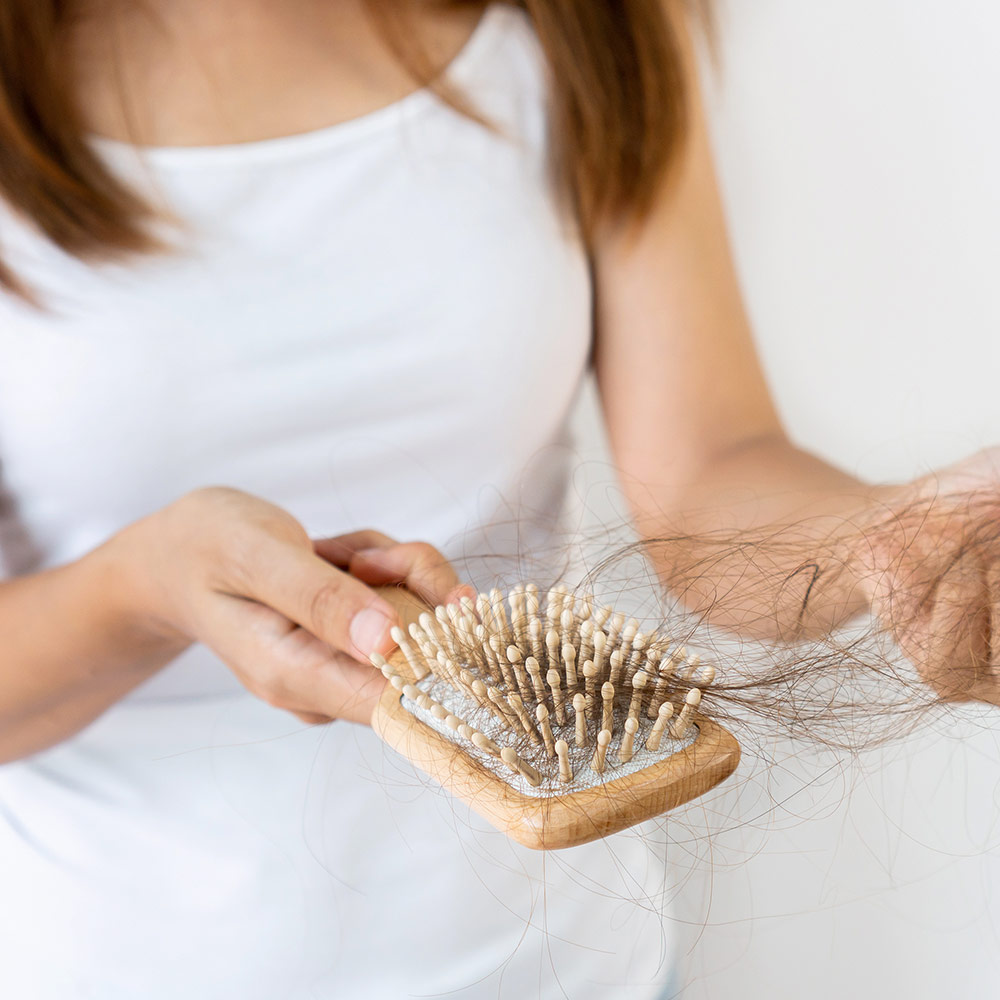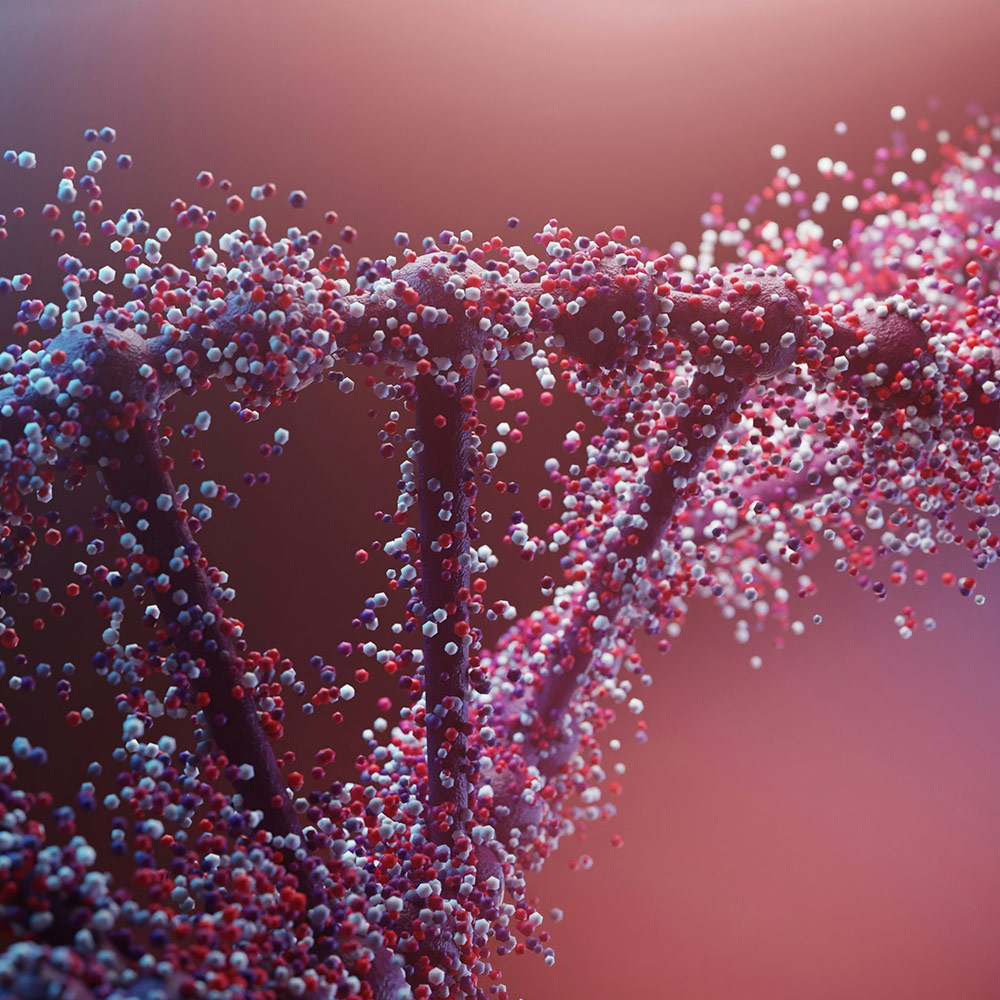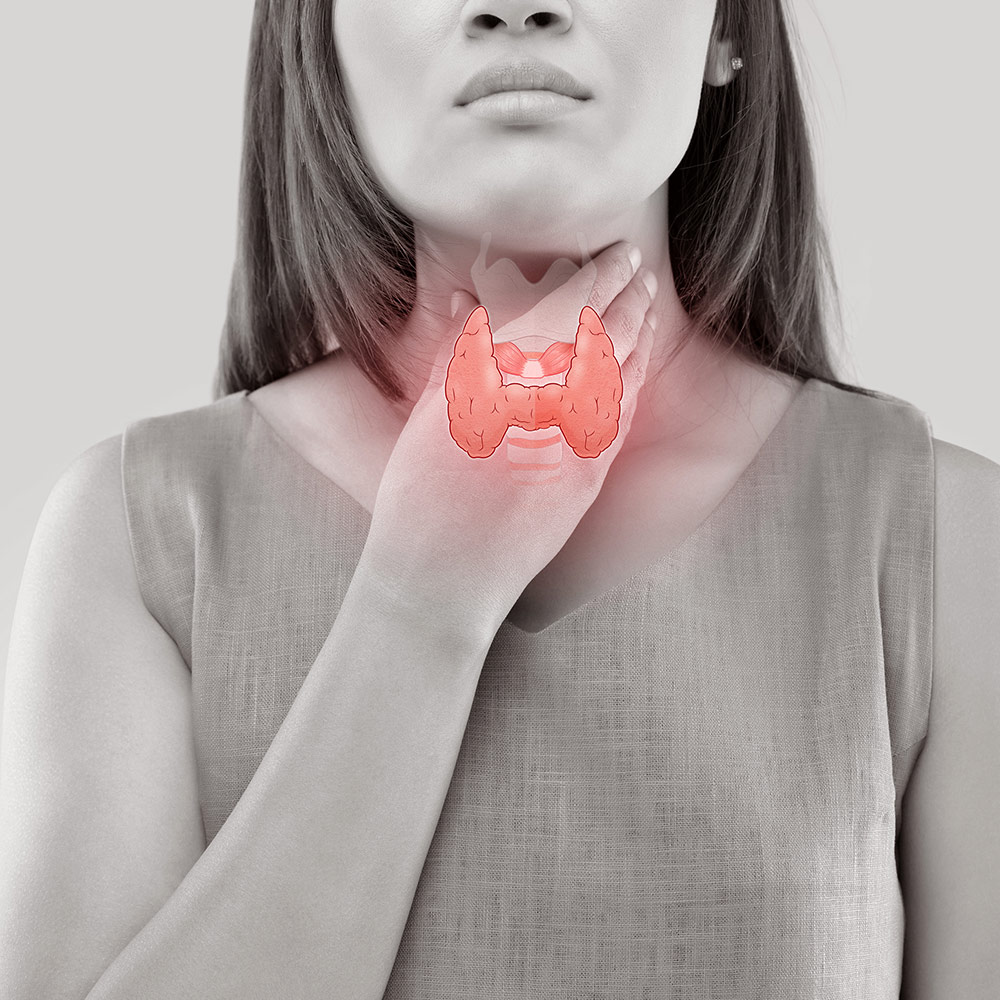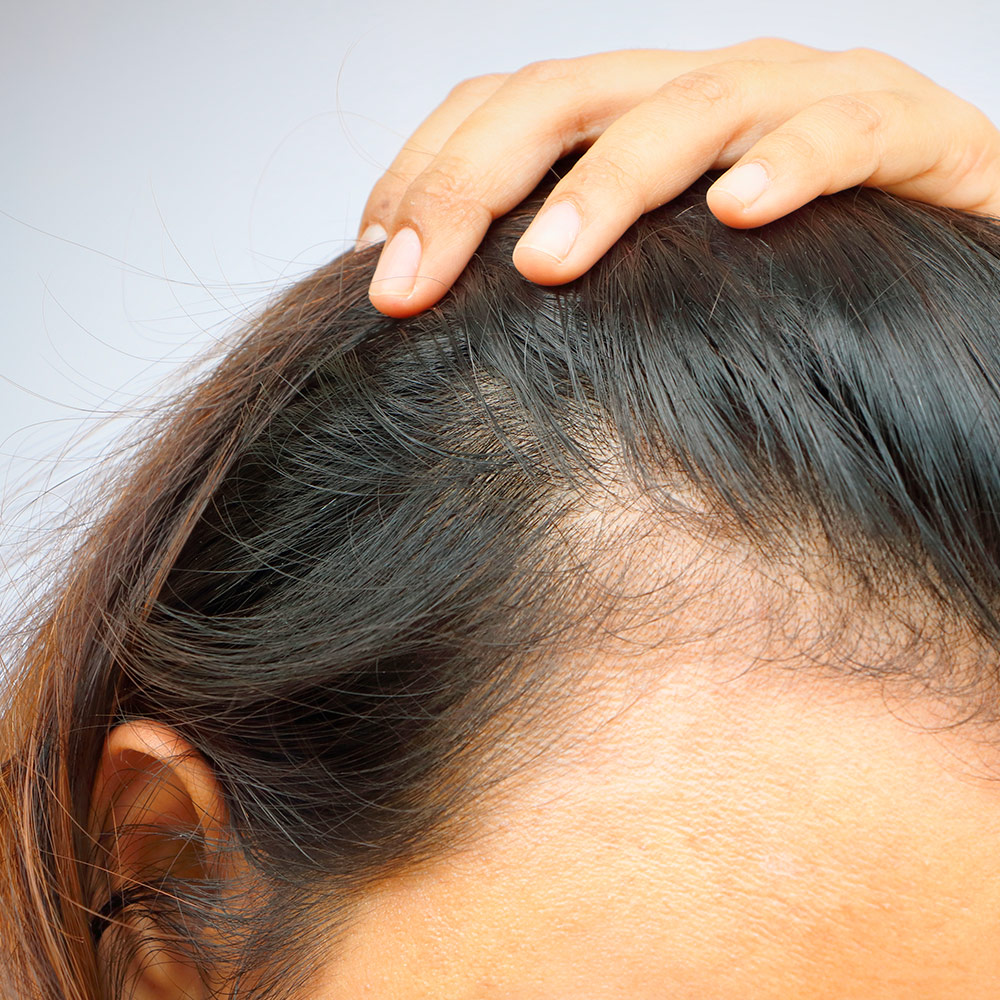Let’s help you get to the root cause of your hair loss. Call (615) 662-8722 today!
Struggling with hair loss? You’re not alone.
Nearly 1 in 2 women will deal with noticeable hair loss. But, that doesn’t have to be your story. Let us help and restore a more youthful fullness to your thinning hair.
Struggling with hair loss? You’re not alone.
Nearly 1 in 2 women will deal with noticeable hair loss. But, that doesn’t have to be your story. Let us help and restore a more youthful fullness to your thinning hair.
What is Causing Your Hair Loss?
Hair loss in women is common and can be triggered by a variety of factors. The most common cause is female pattern hair loss (androgenetic alopecia), a hereditary condition that leads to gradual thinning along the crown and part line. Hormonal changes, such as those that occur during pregnancy, postpartum, menopause, or thyroid disorders, can also contribute. Other causes include stress, nutritional deficiencies, and medical conditions. In many cases, hair loss in women is reversible once the underlying cause is addressed.
What is Causing Your Hair Loss?
Hair loss in women is common and can be triggered by a variety of factors. The most common cause is female pattern hair loss (androgenetic alopecia), a hereditary condition that leads to gradual thinning along the crown and part line. Hormonal changes, such as those that occur during pregnancy, postpartum, menopause, or thyroid disorders, can also contribute. Other causes include stress, nutritional deficiencies, and medical conditions. In many cases, hair loss in women is reversible once the underlying cause is addressed.
Genetics
Genetic hair loss, also known as androgenetic alopecia, affects millions of women worldwide. It typically begins with gradual thinning along the part line or crown and may become more noticeable with age, especially after menopause. Genetic hair loss is linked to how hair follicles respond to hormones like androgens, which can shorten the hair growth cycle and cause finer, weaker strands over time. While genetic hair loss cannot be completely prevented, early treatment can help slow thinning and preserve volume.
Genetics
Genetic hair loss, also known as androgenetic alopecia, affects millions of women worldwide. It typically begins with gradual thinning along the part line or crown and may become more noticeable with age, especially after menopause. Genetic hair loss is linked to how hair follicles respond to hormones like androgens, which can shorten the hair growth cycle and cause finer, weaker strands over time. While genetic hair loss cannot be completely prevented, early treatment can help slow thinning and preserve volume.
Hormones
Hormonal changes are a common cause of women’s hair loss. Shifts in estrogen and progesterone during pregnancy, postpartum, or menopause can disrupt the hair growth cycle and trigger shedding. Higher androgen levels, such as testosterone, may also shrink follicles and cause thinning. Conditions like thyroid disorders and PCOS further contribute by creating imbalances that affect scalp health. Because hormonal hair loss varies, professional evaluation is key to finding effective treatment.
Hormones
Hormonal changes are a common cause of women’s hair loss. Shifts in estrogen and progesterone during pregnancy, postpartum, or menopause can disrupt the hair growth cycle and trigger shedding. Higher androgen levels, such as testosterone, may also shrink follicles and cause thinning. Conditions like thyroid disorders and PCOS further contribute by creating imbalances that affect scalp health. Because hormonal hair loss varies, professional evaluation is key to finding effective treatment.
Thyroid Disorder
Thyroid disorders, including hypothyroidism and hyperthyroidism, can disrupt the body’s hormone balance and directly affect the hair growth cycle. These imbalances may push hair follicles into a resting phase, leading to diffuse thinning or excessive shedding across the scalp. Because thyroid-related hair loss often develops gradually, proper diagnosis and treatment are essential for restoring balance and supporting healthy hair growth.
Thyroid Disorder
Thyroid disorders, including hypothyroidism and hyperthyroidism, can disrupt the body’s hormone balance and directly affect the hair growth cycle. These imbalances may push hair follicles into a resting phase, leading to diffuse thinning or excessive shedding across the scalp. Because thyroid-related hair loss often develops gradually, proper diagnosis and treatment are essential for restoring balance and supporting healthy hair growth.
Stress and Hair Loss
High stress levels can disrupt the hair growth cycle, pushing more follicles into the shedding phase—a condition known as telogen effluvium. This often leads to noticeable thinning across the scalp weeks or months after a stressful event. While stress-related hair loss is usually temporary, managing stress through healthy lifestyle habits and professional support can help restore natural growth.
Stress and Hair Loss
High stress levels can disrupt the hair growth cycle, pushing more follicles into the shedding phase—a condition known as telogen effluvium. This often leads to noticeable thinning across the scalp weeks or months after a stressful event. While stress-related hair loss is usually temporary, managing stress through healthy lifestyle habits and professional support can help restore natural growth.
Postpartum Hair Loss
Postpartum hair loss occurs when estrogen levels drop after childbirth, causing more hairs to enter the shedding phase. This temporary condition, known as telogen effluvium, often peaks a few months after delivery and usually resolves within a year as hormone levels rebalance.
Postpartum Hair Loss
Postpartum hair loss occurs when estrogen levels drop after childbirth, causing more hairs to enter the shedding phase. This temporary condition, known as telogen effluvium, often peaks a few months after delivery and usually resolves within a year as hormone levels rebalance.
What to Expect at Your Consultation
- 45 minute consultation with a advanced clinical Trichologist (Hair Loss Expert)
- Trichology analysis (microscopic view of your scalp and hair strands) and images
- Single Hair Analysis Test will reveal detailed insights into your hair loss
- Additional lab ordering if needed through personal insurance
- Women’s hair loss connection education session
- Personally tailored treatment plan
What to Expect at Your Consultation
- 45 minute consultation with a advanced clinical Trichologist (Hair Loss Expert)
- Trichology analysis (microscopic view of your scalp and hair strands) and images
- Single Hair Analysis Test will reveal detailed insights into your hair loss
- Additional lab ordering if needed through personal insurance
- Women’s hair loss connection education session
- Personally tailored treatment plan
Schedule a 45-Minute Online Consultation or Call (615) 662-8722 to Discuss Personalized Options.
Hundreds of success stories
[We want yours to be next!]


